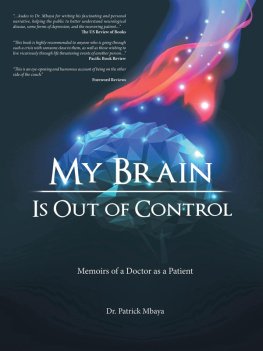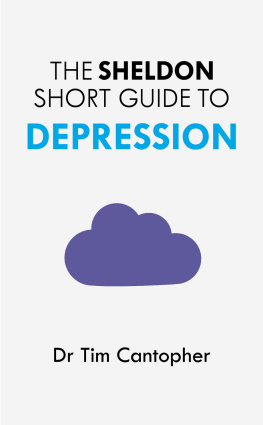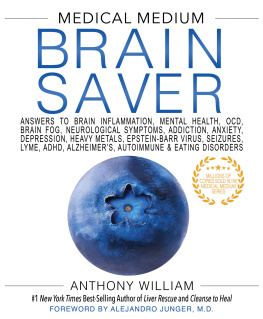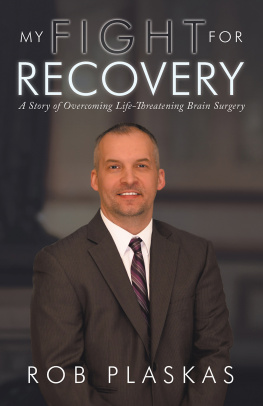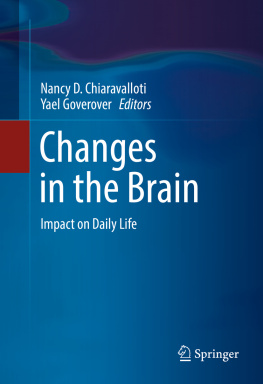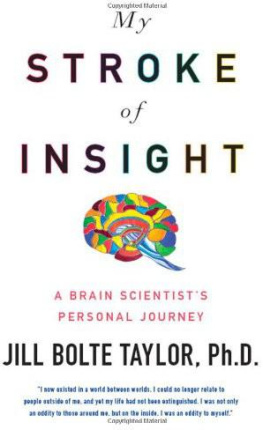My Brain
Is Out of Control
Memoirs of a Doctor as a Patient
Dr. Patrick Mbaya

AuthorHouse UK
1663 Liberty Drive
Bloomington, IN 47403 USA
www.authorhouse.co.uk
Phone: 0800.197.4150
2016 Dr. Patrick Mbaya. All rights reserved.
No part of this book may be reproduced, stored in a retrieval system, or transmitted by any means without the written permission of the author.
Published by AuthorHouse 06/30/2017
ISBN: 978-1-5246-6419-0 (Softcover)
ISBN: 978-1-5246-6418-3 (e-Book)
ISBN: 978-1-5246-8020-6 (Audio)
Any people depicted in stock imagery provided by Thinkstock are models,
and such images are being used for illustrative purposes only.
Certain stock imagery Thinkstock.
Because of the dynamic nature of the Internet, any web addresses or links contained in this book may have changed since publication and may no longer be valid. The views expressed in this work are solely those of the author and do not necessarily reflect the views of the publisher, and the publisher hereby disclaims any responsibility for them.
My Brain Is Out of Control
Memoirs of a Doctor as a Patient
Contents
My illness, eventually diagnosed as a brain abscess, affected my speech, my ability to write, and my emotions. I was unable to write at all until about two weeks after my brain operation. I had learnt to text with my left hand but not to write. After my family and friends, who insisted on visiting me, had gone, I wrote down what had happened that day. It was like learning how to write again, and gradually my handwriting improved. I regularly made notes over the four-week period I was in the hospital (the Regional Neurosurgical Unit), and the three months following discharge. I referred to these notes afterwards in order to write this book.
Writing served two purposes. It helped me pass time because the evenings were very long, and it was therapeutic in that I was able to vent on what had happened that day. It became easier to write things down, and as time went by, my concentration improved as my brain recovered. However, until now this had been private. Only now am I choosing to share this.
What I have written in this book is exactly what happened to me during my illness: my illness, its consequences, and drug complications.
I have changed the names of people named in the book. People who didnt know me during my illness are unlikely to know I was seriously ill because I have completely recovered from my illness. Reading my book may bring them closer to me, and it may help them better understand me as an individual. There are other reasons for writing this book. I hope it helps doctors to see things from a patients perspective, and it may also give hope to other people with depression or brain disorders, as well as to their families. What I went through was very difficult for me, but I got better and am very fortunate in that I have returned to work and have a relatively normal social life. I am very lucky because I could have died.
The clinical description of my illness and its complications is based on my clinical knowledge as a medical doctor and psychiatrist and from references to medical books and scientific papers. However, this book is very much my personal perspective of my illness and what helped me to understand and cope with it, including the neurological and psychiatric complications that I experienced.
I have never written a book before, but I have written or cowritten a few scientific papers. My job as a medical doctor specialising in psychiatry also involves teaching medical students, psychiatry trainees, and other mental health workers. I have an interest in neurobiology (brain biology) of psychiatric illness, and in particular affective (mood) disorders and addiction. Understanding how these illnesses occur also helps understanding how medication (or other treatments) work, and which may be the most effective treatment for a particular condition.
Research looking at particular brain structures, neurotransmitters (brain chemicals) involved in using various techniques like neuroimaging (looking at the brain), has improved the understanding of psychiatric disorders such as depression and how different treatments work.
In this book, I often refer to my mystery brain infection because the exact cause of my brain abscess was never clarified. It caused both neurological and emotional symptoms. However, although my illness caused a lot distress to me and nearly took my life, the emotional symptoms of depression I developed made me understand (and empathise) with my patients and how they feel when they get this illness. This has improved my understanding of the illness. It was a coincidence that the day after I was supposed to give a lecture to senior-grade doctors on clinical depression, I was admitted to the hospital with my mystery illness. One of the complications I developed was the same topic I was to lecture on.
My admission to the hospital also gave me a good understanding of how patients feel when they are admitted I saw things from the other side of the bed. I also experienced hospital culture as a patient. I now have a better understanding of what frustrates patients as well!
When I suddenly became unwell, I was fifty-five and at the peak my career. I lived with my wife and our daughter and son (both of who were in their twenties at the time). My life revolved around home and work. I would spend my weekend helping out with the usual household duties like hoovering or watering the garden. Listening to my iPod made these tedious jobs less painful. I would also spend time visiting my son at his music studio; he played me tracks he had made, and I was excited to listen to them. On occasion, after I had been there for a long time enjoying the tracks, I would suddenly get a phone call from my wife. Are you still in the studio? Youre supposed to be back to finish what you were doing.
As for work, I enjoyed my work as a consultant psychiatrist in the National Health Service (NHS). I got a lot of satisfaction from my job of treating patients and making them better. My work as an honorary lecturer in psychiatry for the University of Manchester gave me extra satisfaction: I was able to share my clinical knowledge with medical students, mental health workers, and colleagues.
I obtained my medical degree at Manchester University Medical School. Although doing medicine is tough, I still had a good time. The trick was to balance the rigours of working and studying all week and yet still have the energy on Saturday go out to soul clubs in Manchester. I also banned myself from going out six weeks before end-of-term or end-of-year exams. During the late seventies and early eighties, the Manchester music scene was vibrant. While out with friends at soul clubs in Manchester, my goal was to listen and dance to music. I would wear my biggest bell-bottom flared trousers; they were so large that if it was windy, I would easily be blown away. My passion for music was reinforced during this period. Dancing to Michael Jackson or James Brown makes one move the body and sweat so much that there was no need for any other form of exercise or going to the gym! Maybe that was why I didnt need to exercise before I was ill. I would also save some money from my allowance in order to go watch live bands who were playing in Manchester, like Bob Marley.
I was fit and healthy and never had any serious illness prior to my mystery illness. The story of my illness began two weeks before my admission to my local general hospital, on Tuesday, 29 June 2010. On that date, my right ear was blocked again, but that was not unusual; it had happened many times before. I normally apply ear drops or have it syringed, and it is fixed. I contacted my general practitioners surgery to make an appointment to have it syringed. I was told the practice nurse wouldnt be able to syringe it for two weeks because they were very busy. I was unable on this occasion to sweet-talk the GP (general practitioner) receptionist in order to have it done more promptly, so I had to resign myself to the delay.
Next page
